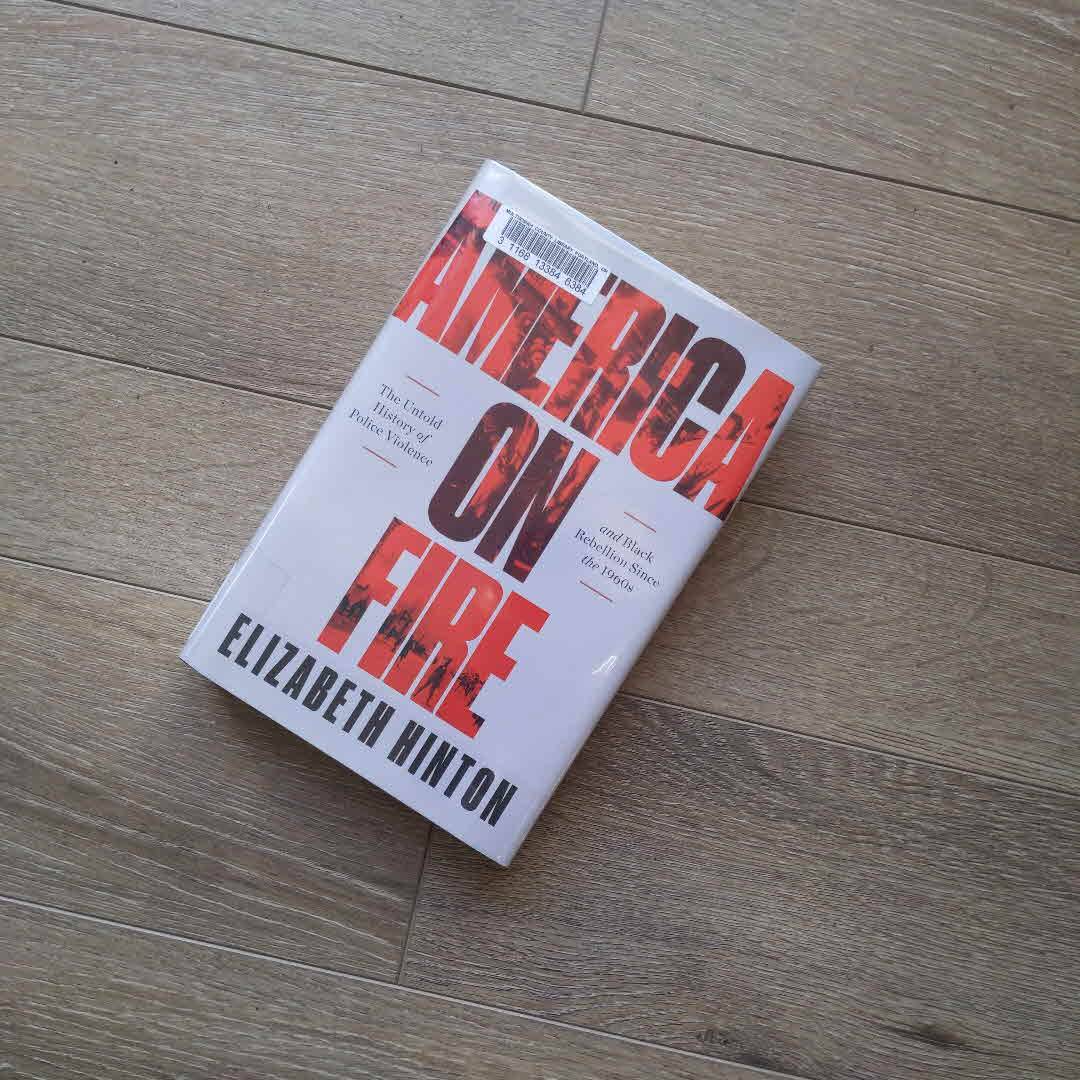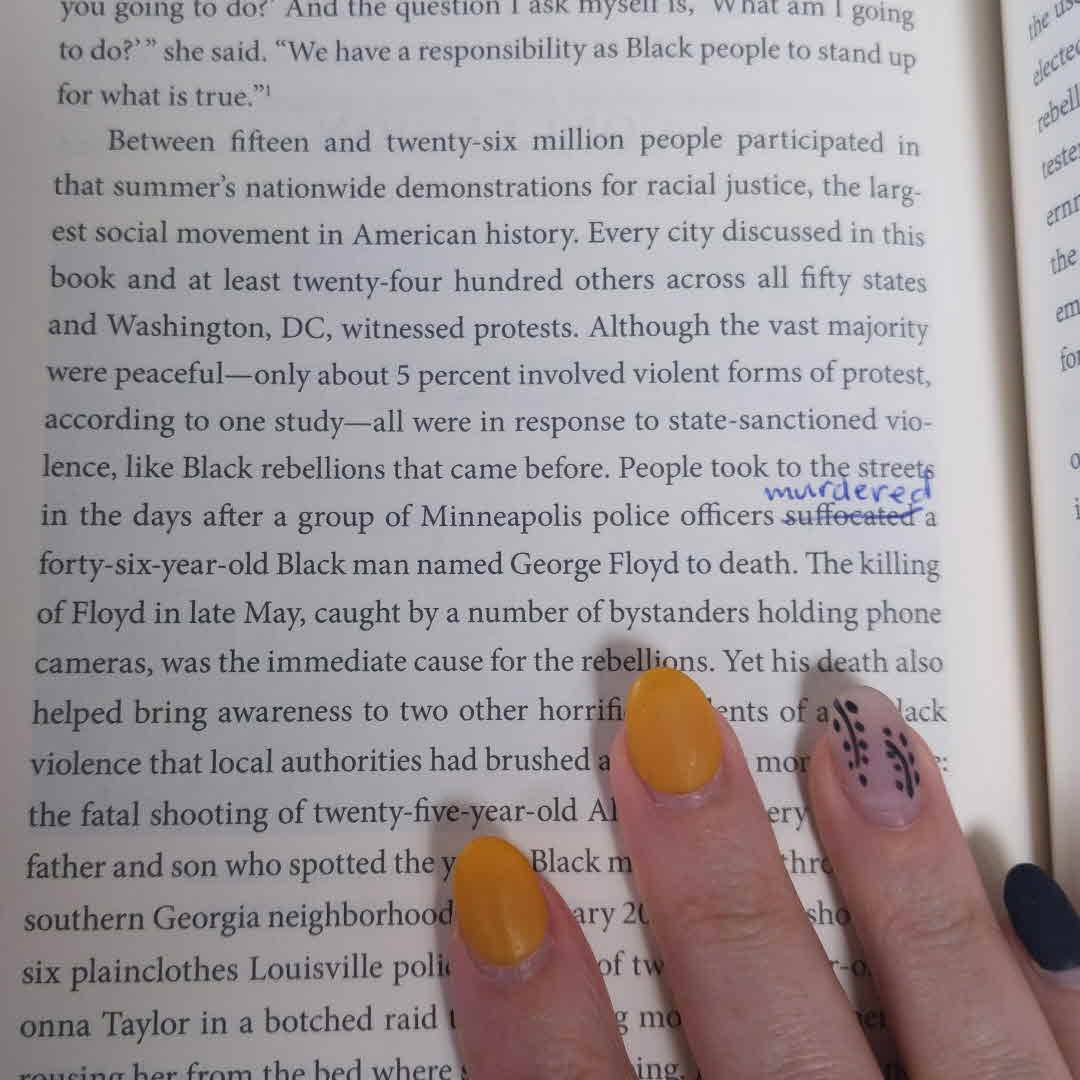
Not an easy read, I should have bought it so I could take more time reading, it is not a book to be rushed. A lot is covered in 300 pages, almost too much, it felt a bit chaotic at the beginning.

Not an easy read, I should have bought it so I could take more time reading, it is not a book to be rushed. A lot is covered in 300 pages, almost too much, it felt a bit chaotic at the beginning.

While I dislike when people write in library books, I do feel the energy with this "correction" and I am not mad about it.

I received this book as a digital advanced reader copy from Edelweiss. A look at the cyclical nature of protests, commissions, and lack of enforcement of commission recommendations and then the next violent act which sets off more protests. Hinton gives the most lucid description of the phrase “defund the police” that I have ever read. This is an educational read that just might make us aware enough to keep history from repeating.